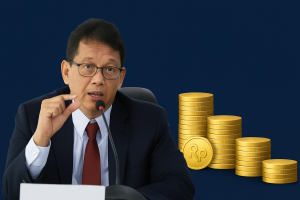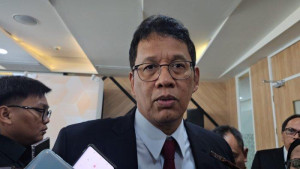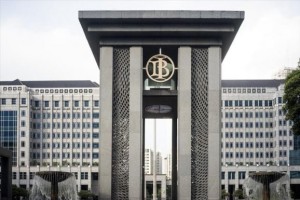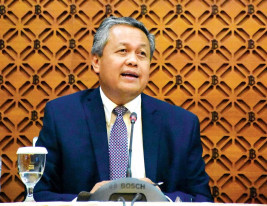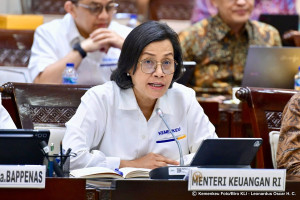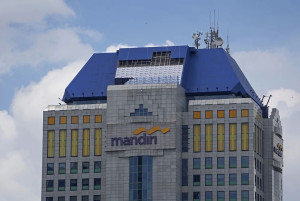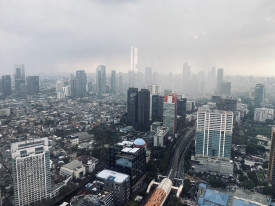#Macroeconomics
Deloitte: Asia-Pacific climate transition could boost economy by US$50 T by 2070
A new Deloitte report projects that the Asia-Pacific climate transition could add US$50 trillion (Rp833.054 trillion) to the region’s economy by 2070, while unlocking up to US$90 trillion in investment opportunities by 2050 for new technologies and supporting industries.
Finance Minister to redirect state funds from BI to lenders starting September 12
Minister of Finance Purbaya Yudhi Sadewa has announced that idle state funds, held at the Indonesian Central Bank (BI), will be placed into the banking system beginning Friday, September 12, 2025 and allocated to state-owned lenders under the Himbara group of State banks as well as Islamic banks.
Finance Minister plans Rp200 trillion liquidity injection to revive economy
Minister of Finance, Purbaya Yudhi Sadewa, has announced plans to revive Indonesia’s economic engines by channeling government funds from the Indonesian Central Bank (BI) into the banking sector.
Government-BI agree on burden-sharing to fund housing, village cooperatives
The government and the Indonesian Central Bank (BI) have agreed on a new burden-sharing mechanism to support priority programs under President Prabowo Subianto’s Asta Cita agenda, in particular the Public Housing Program and the Red-and-White Village Cooperatives initiative.
Economists warn of risks as BI ramps up bond purchases to support Prabowo’s agenda
The Indonesian Central Bank (BI) has purchased Rp200 trillion (US$12.9 billion) worth of government bonds as of early September to support President Prabowo Subianto’s Asta Cita economic programs, but economists are warning of potential long-term risks to monetary credibility and market stability.
Sri Mulyani rules out new taxes in 2026 despite revenue target increase
Minister of Finance, Sri Mulyani Indrawati, has assured the public that the government will not introduce new taxes in 2026, even as state revenue is projected to rise by 9.8 percent.
Rupiah rebounds after protests, BI steps in with stabilization measures
The rupiah came under pressure during Friday, August 29, 2025 protests, weakening to Rp16,509 per US dollar, but gradually recovered and closed stronger on Monday, September 1, 2025 afternoon at Rp16,428 per dollar after opened Rp16,259 per dollar earlier in the day.
Bank Mandiri welcomes BI rate cut, strengthens focus on healthy, inclusive credit growth
State-owned Bank Mandiri has welcomed the Indonesian Central Bank’s (BI) decision to lower the benchmark BI Rate by 25 basis points to 5.00 percent, calling it an accommodative step to maintain economic stability amid global uncertainties.
Finance Ministry rolls out fiscal incentives to boost green investment
The Indonesian Ministry of Finance has introduced a series of fiscal incentives to attract investment in the energy transition and sustainable development sectors.
MK upholds VAT law, opening path for potential hike up to 15 percent
The Constitutional Court (MK) has rejected the petition for judicial review of Law No. 7/2021 on the Harmonization of Tax Regulations (UU HPP), in particular the related article on Value Added Tax (VAT) rates.
Indonesia’s Q2 2025 economic growth hits 5.12 percent, but impact remains elusive
A market analyst has challenged the accuracy of the 5.12 percent year-on-year (yoy) growth of Indonesia’s economy in the second quarter (Q2) of 2025 as reported by Statistics Indonesia (BPS), asking whether this growth is truly reflected in the daily lives of ordinary citizens.
Online spending soars as government rejects claims of weak purchasing power
Coordinating Minister for the Economy, Airlangga Hartarto, said that the continued rise in online shopping transactions is clear evidence that Indonesians' purchasing power remains strong, contrary to recent concerns.



